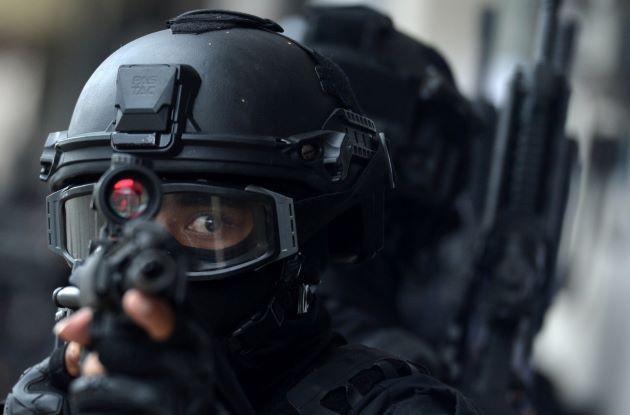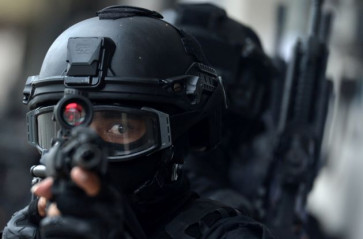Popular Reads
Top Results
Can't find what you're looking for?
View all search resultsPopular Reads
Top Results
Can't find what you're looking for?
View all search resultsTNI’s role in counterterrorism: Between needs and politics
The existence of counterterrorism units within each of TNI service means the military still perceives counterterrorism as part of its regular duties.
Change text size
Gift Premium Articles
to Anyone
F
ollowing the end of the New Order regime (1966-1998), the Indonesian military (TNI) embarked on reforms, in which separation of police from the military was one of the results. The TNI since then has focused its role on defense affairs and acted as a supporter for internal security matters, including counterterrorism.
Law No. 34/2004 on TNI regulates the armed forces as a supporting component in counterterrorism duty. The law also divides the military duties into war operations and military operations other than war (MOOTW), in which counterterrorism is listed under the latter. MOOTW itself covers a wide range of non-defense roles, ranging from counterinsurgency to disaster mitigation.
The series of terror attacks in the early 2000s, including the first Bali bombings on Oct. 12, 2002, placed the National Police (Polri) as a lame duck. The public accused the police of incompetency in detecting and preventing terrorism. This perceived ineptitude of the police provided a strong justification to include the military in counterterrorism at that time.
Two decades after the Bali attack, the TNI still retains its strong presence in counterterrorism, as well as territories beyond defense affairs. The outbreak of COVID-19 showcases the importance of TNI’s MOOTW capability in supporting the management of the pandemic. In fact, the government has employed the TNI as an auxiliary force and heavily involved the military leadership in managing the COVID-19 pandemic since it struck in early 2020.
Why does the military keep playing a major role in counterterrorism and MOOTW?
Despite being the primary force in counterterrorism, the police, on some occasions, may have to step back and allow the military to take the spotlight. One example was the manhunt of terror suspect Santoso and later the remnants of his East Indonesia Mujahidin (MIT) group in Poso, Central Sulawesi, notably during the Tinombala operation (2015-2021).
The manhunt met some extreme difficulties as the militants were well armed and residing in the mountainous and densely vegetated rural areas. The constant failure to apprehend Santoso and the lack of capability in jungle warfare paved the way for the military to join the operation. The need for jungle warfare ensured the involvement of the military in the counterterrorism operation in Poso as the police are not authorized to possess such ability.


















